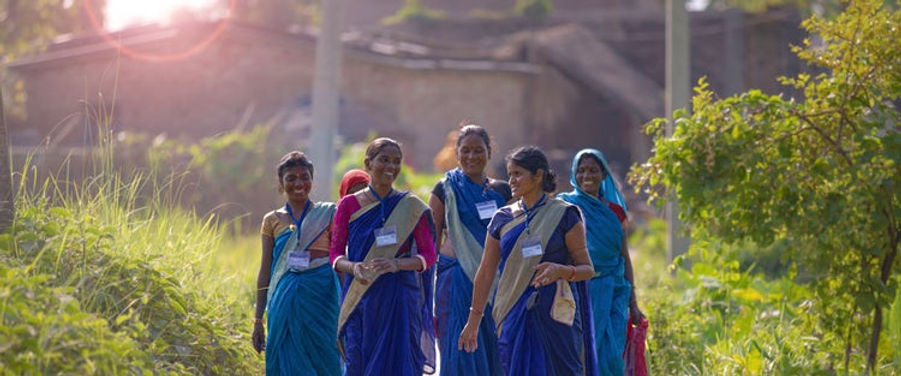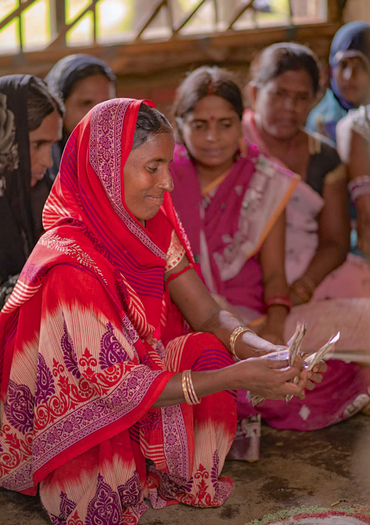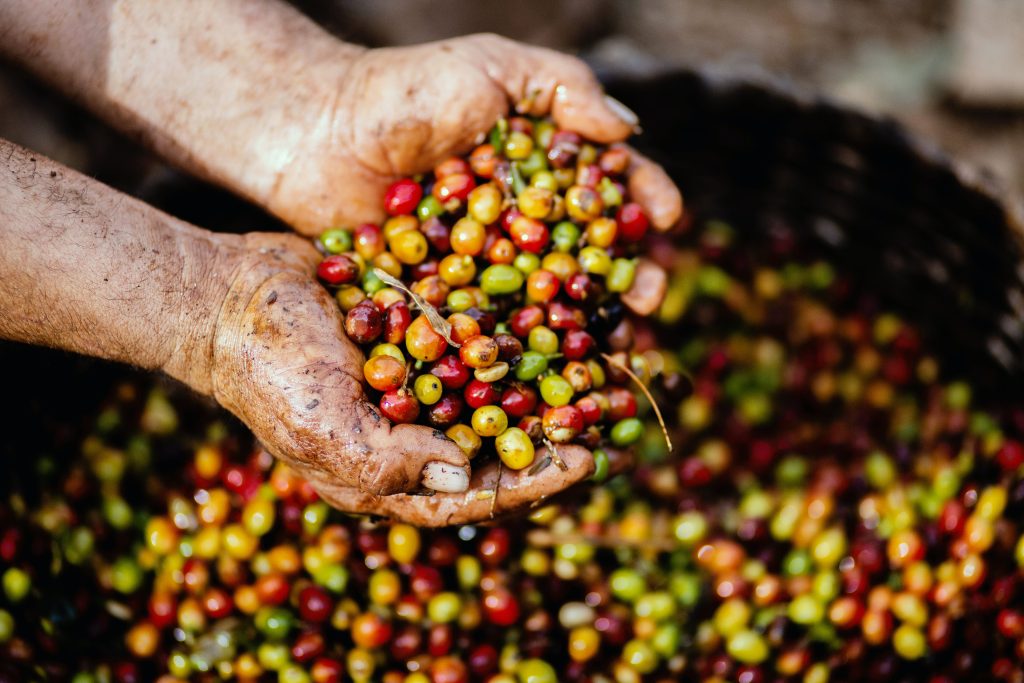The woes of women in Bihar, located in northeast India, are rooted in deep caste and patriarchal prejudices. Agriculture production and sales provide income and livelihood to nearly 76% of the state’s population. The state’s agricultural workforce — its primary economic driver — is 50% women who spend several hours a day tending to farm work that ranges from preparing the land, sowing seeds and applying fertilizers to harvesting.

Photo: Pranab K. Aich/Heifer International
Despite contributing massively to agricultural production, prevailing attitudes look down upon them as agricultural laborers and only a small fraction of women in Bihar are entitled to landholdings. Amid these restrictive social norms, no asset ownership means no power, and for women it also translates to no voice.
Considered a part of domestic work, traditional livestock rearing has never been recognized as a source of sustainable income; yet, the animal husbandry sector contributes to about one-fifth of the total income in Bihar and creates employment opportunities for women.
With these livestock-based livelihoods, women farmers — like Nutan Devi — have the opportunity to change the oppressive social and economic dynamics in their communities. The Hindi word “nutan” means “new” or “avant-garde” in English — and Devi is living up to her name by bringing new possibilities to thousands of women farmers in rural Bihar.
With the support of Heifer International’s Bihar Sustainable Livelihoods Development project, Devi and thousands of other women associated with Kamla Farmer Producer Company Limited, a women-led farmer producer organization (FPO), are changing the face of women’s participation in agriculture and business.
“I needed training to build myself.”
Despite having volunteered for an educational mission as a young girl, Devi had to leave her own education to tend to her domestic duties after marriage. But her interest to grow, learn and serve did not fade away. Determined to complete her studies, she continued learning on her own.
“My family was not in favour of my education, so I secretly kept studying and later completed graduation in sociology,” Devi shared. “I know [the] importance of education, and I support all my children to complete their higher studies.”
In 2017, Devi joined one of the self-help groups supported by Heifer’s project to learn about savings, loans and techniques to improve livestock production.
“I attended the training and learnt so much,” she said. “I realized I needed the training to build myself. I did not just attend them; I started applying the learnings in my life. Every single training had a deep impact on me.”
In 2018, Heifer and its local partner, Mithila Gram Vikas Parishad, registered Kamla Farmer Producer Company Limited to bring all women farmers under a regulated business hub to effectively link producers with the markets.
Through her learning and leadership, Devi became a founding member, and was later unanimously elected as the president of the FPO.
“We don’t fear roadblocks.”
Devi, along with the board of directors, began work understanding what it takes to operate and run an FPO. “There were a lot of problems when we started,” Devi said. “But, we don’t fear roadblocks.”
To help Devi and the members build the business sustainably, Heifer organized financial management and business development training and supported them in devising strategies to increase share capital, improve business and increase profits.
“I did not know what an FPO was — how it works, what a balance sheet [is] — I had no clue,” Devi said. “I attended the FPO Assessment Training and learned everything from scratch. Today, we are supporting goat and seed businesses, working with buyers, managing financial documents and earning profits.”
To date, Kamla Farmer Producer Company has made a revenue of 18,000,000 Indian Rupees or $243,000 dollars.
“Support the most needy and vulnerable women farmers.”
Being chosen as the president did not come without its share of pains and hurdles. In a state where half of women are illiterate, and most girls are married young, the patriarchal clutches rarely allow women to take active roles in social spheres.
“Attending to my duties was not easy. I was constantly questioned. People pointed fingers at my family. And, my son was just one year old [so] managing home and business together was difficult. My husband was not [supportive]. But, I did not think of quitting. I was chosen as the president and I was representing many women,” Devi said.
“This company is for those women farmers who work as tenants and have to give away 80% of their produce as rent,” she added, describing a common reality for Bihar’s poorest agricultural workers. “This company is to support [the] most needy and vulnerable women farmers. We stand for them, just like they stand for us.”
“Unite, and move forward with courage”
Bihar reels under the weight of a complex social structure with a deeply entrenched caste system which impedes — and at time reverses — development efforts. Heifer’s projects are driven by values that instil the skills communities need to become self-reliant, to rise above prejudice and discrimination, and to build social cohesion for collective growth.
The members of Kamla Farmer Producer Company reflect these values as they grow and expand their businesses.
“Our company has 10 directors which include representatives from Scheduled Castes and Tribes, minority groups and even the most marginalized communities that have faced discrimination for years,” Devi said. “We work together with the single aim of building the businesses of our members.”
Now, they have their sights set on the future. Kamla Farmer Producer Company plans to expand their business with their recent investment in a pickup truck and a collection center, and Devi envisions the FPO reaching 10,000 women farmer members in the near future.
“We always encourage all members to unite and move forward with courage,” she said. “It is important to believe in ourselves. We approach difficulties with a mindset of overcoming them. The mantra is simple: Find a solution. There is no giving up.”
This article was originally published by Heifer International.

